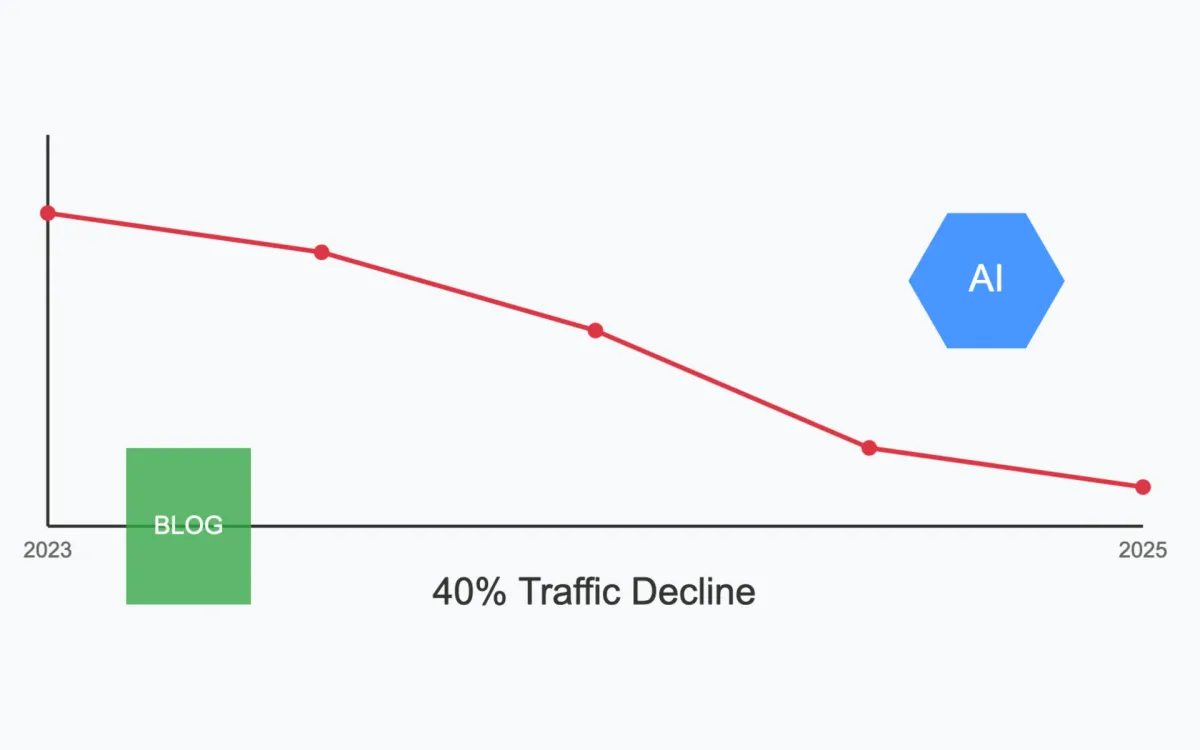
Amanda Williams built her travel blog into a successful business over 15 years, reaching more than 150,000 monthly visitors and partnering with destinations worldwide. Now, that success stands threatened by recent changes in how people find information online.
According to Williams, her website A Dangerous Business experienced a 40% decline in traffic over the past year. The site's advertising revenue dropped 34% year-over-year in 2024, though it had previously been strong enough to support her full-time career since 2015.
"In less than 12 months it has gone from a really successful business I was confident in to a ticking time bomb that I'm scared of," Williams wrote in a detailed analysis published January 15, 2025.
The decline began following Google's "Helpful Content Update" in September 2023. According to Williams, this update seemed to specifically target smaller, independent publishers across various industries. Some of her colleagues have reported losses of up to 90% in both traffic and revenue.
Williams attended Google's Creator Conversation Event in October 2024, where company representatives acknowledged they could not fully explain why quality sites experienced such severe declines. According to attendees' reports, Google engineers appeared unable to fully understand or control their own algorithm's behavior.
The introduction of AI-generated content has compounded these challenges. According to Williams's analysis, when Google displays AI-generated overviews of search topics, it often uses content from sites like hers without providing proper attribution or driving traffic to the original sources.
Environmental concerns add another dimension to the crisis. According to research cited by Williams, a single AI-generated email consumes the equivalent water volume of a 16-ounce bottle. Google's greenhouse gas emissions increased 48% over five years, with a 13% increase in 2023 alone, driven largely by AI-related energy consumption.
The impact extends beyond individual publishers. Williams reports that many of her colleagues have been forced to lay off staff, pivot to different business models, or abandon their publishing careers entirely. The situation particularly affects travel content creators who rely on first-hand experience to provide accurate, detailed information.
Despite these challenges, Williams maintains a determined outlook. According to her publication, she plans to continue creating content while exploring alternative revenue streams. However, she acknowledges the possibility that within two years, she might need to find different primary income sources.
Williams, who holds a master's degree in tourism management and has visited more than 60 countries across six continents, emphasizes that AI cannot replicate the value of personal travel experience. Her site has won multiple awards, including a Gold Award for Best Travel Blog in the 2020-21 Lowell Thomas Travel Journalism Competition.
The crisis facing independent publishers like Williams reflects broader changes in how information spreads online. According to leaked documents cited in her analysis, Google has implemented a "smallPersonalSite" classification system, though the company has not publicly confirmed this practice.
Industry data shows Google achieved record profits in 2024, despite its search market share falling below 90% for the first time in a decade. Meanwhile, independent publishers continue struggling to adapt to an increasingly AI-dominated digital landscape.
Williams's experience mirrors a wider industry transformation that raises questions about the future of independent online publishing, environmental sustainability, and the preservation of first-hand expertise in digital content. Her story represents thousands of other independent publishers facing similar challenges in the rapidly evolving digital media landscape.

